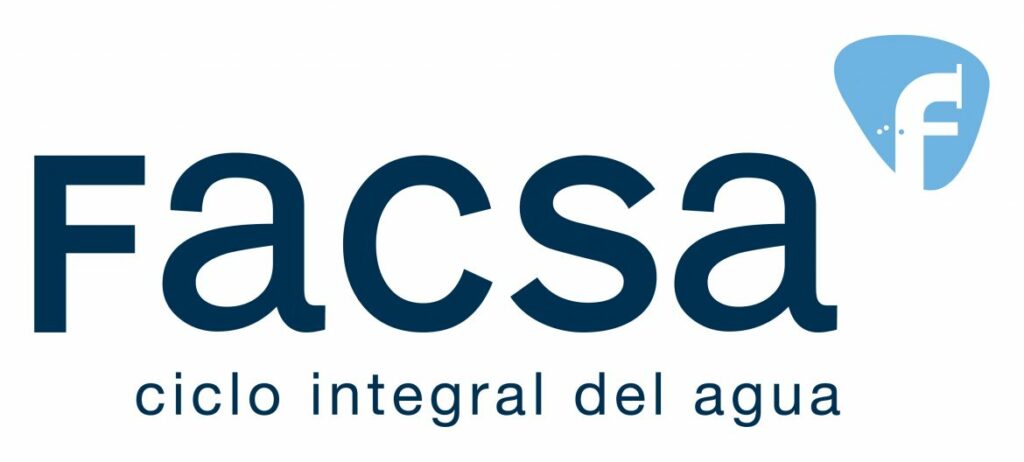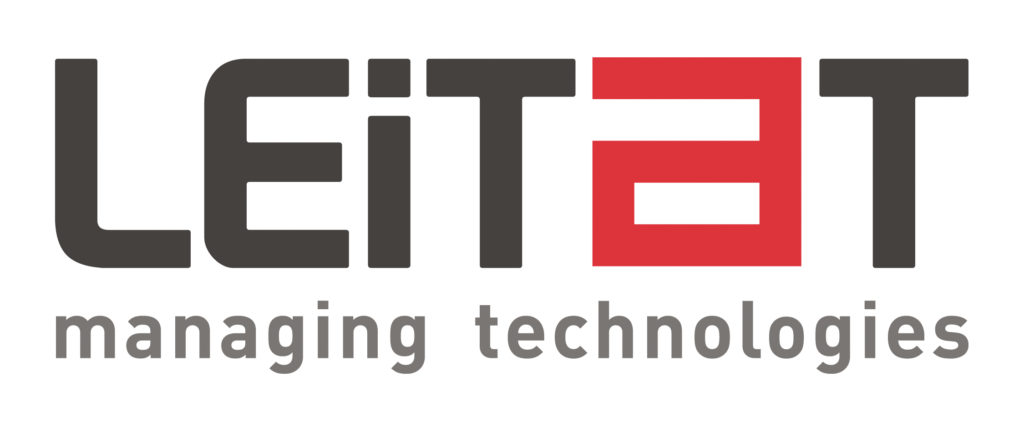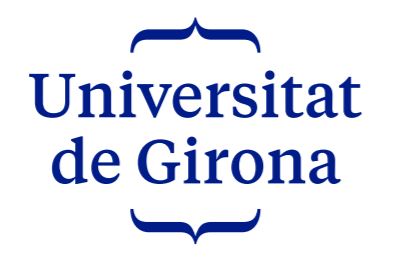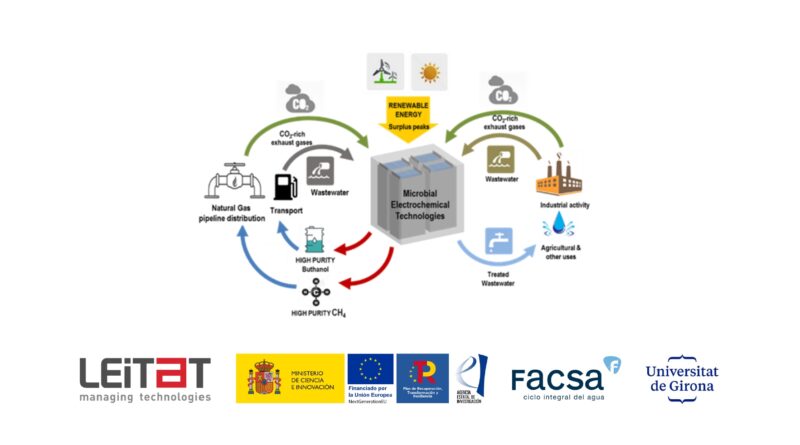Bioelectroconversion of orGAnic waste streams and CO2 into sustaInAble fuels
Bioelectroconversion of orGAnic waste streams and CO2 into sustaInAble fuels
GAIA project was funded under the frame of the call “Proyectos de I+D+I en Líneas estratégicas 2021” funded by the Spanish Ministry of Science and Innovation. For three years, the consortium formed by Leitat Technological Center (as coordinator), Universitat de Girona (LEQUIA and gEMM research groups) and the company Sociedad Fomento Agrícola Castellonense, S.A. (FACSA) will work on the use of renewable feedstocks, such as wastewater and CO2, for its bioconversion into sustainable fuels, paving the way for an alternative to achieve a future decarbonized economy, boosting the development of Carbon Capture and Utilisation Technologies (CCUs) and opening new opportunities for the biobased processes. The project proposes a technological and alternative solution to decarbonize the current economy and specifically for the water sector towards a more sustainable scenario and innovative Waste Water Treatment Plants (WWTP).
GAIA project aims developing novel, energy-efficient solutions for obtaining both liquid (butanol) and gas (methane) biofuels, based on microbial electrochemical technologies (MET). MET use electroactive microorganisms to catalyse the electrochemical process of CO2 conversion to fuels, they operate under mild conditions and without need of externally produced H2, thereby decreasing the energy requirement of the process. METs are highly flexible to diverse CO2-exhaust gases, wastewaters and renewable energies surplus scenarios. GAIA will increase the electrical current density of METs, boosting the production rate to >1 m3/m3/d for methane and > 0.25 kg/m3/d for butanol. Both will allow to increase the economical competitiveness of the MET technology, decreasing more than order of magnitude its current fuel production costs. GAIA will achieve these goals through improvement of electrode materials and reactor geometries by additive manufacturing, enhancement of electrode-microorganism interaction and bioprocess engineering approaches. The technology will be validated at laboratory-scale (TRL4) and a complete techno-economical, replicability and societal assessment will pave the ground for benchmarking and commercialization of the technology in the future.
Thanks to a societal assessment, stakeholders´ needs and concerns will be addressed to promote public acceptance and awareness, increasing societal readiness of the proposed solution. In terms of exploitation, the use of CO2 and renewable feedstocks to produce sustainable fuels, will help to create novel business models for wastewater treatment plants (among other potential stakeholders), which will turn into biorefineries, based on Circular Economy principles, while promoting their decarbonization. Project outputs, together with an exploitation plan, will set the roadmap for short/medium term market implementation of the technology.
Project Budget: 538.596,07€
Leitat Budget: 214.058,00€
Financial Framework: Proyectos I+D+i en líneas estratégicas, en colaboración público-privada 2021
Contract number: PLEC2021-007802
Start Date: 01/10/2021
End Date: 01/10/2024



Contact Manager: I. Ortiz
Project PLEC2021-007802 funded by MCIN/AEI /10.13039/501100011033 and by European Union NextGenerationEU/PRTR.


